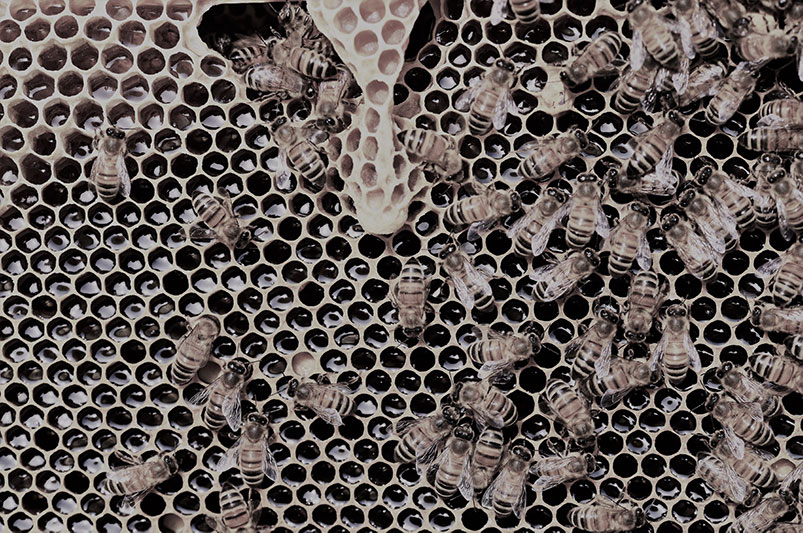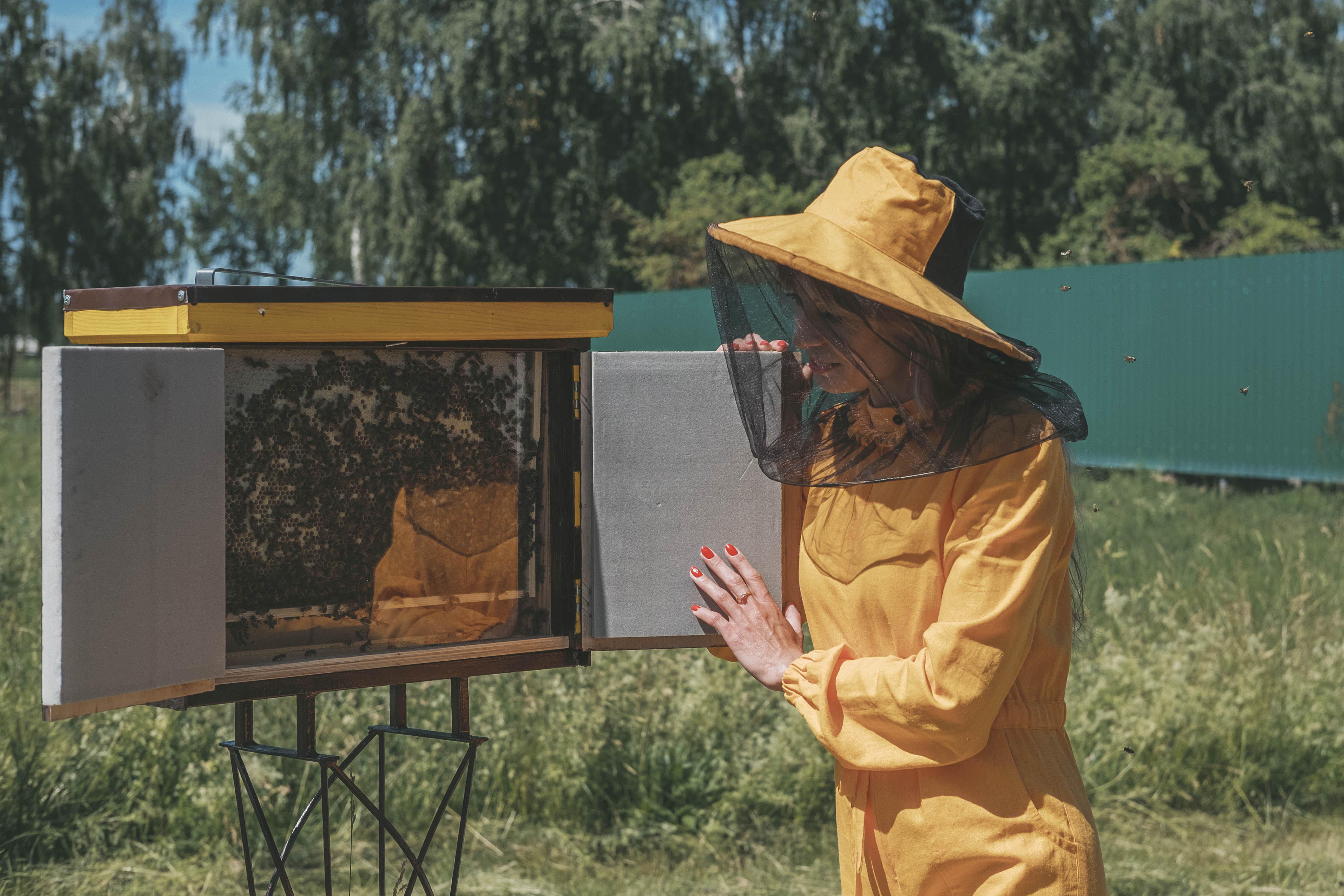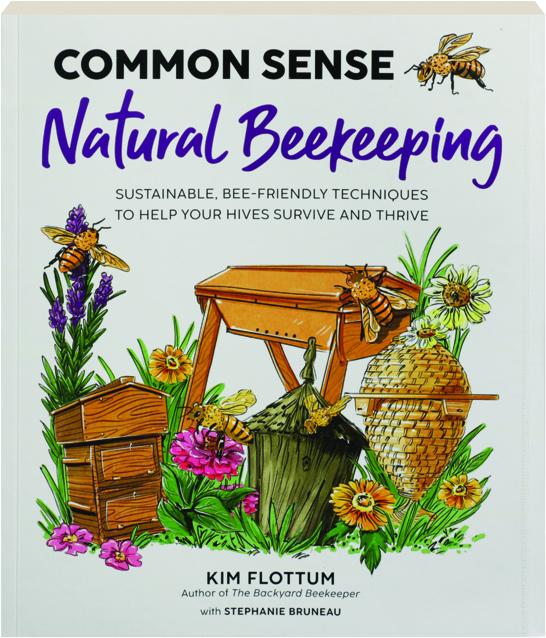Contents
- I. Introduction to Beekeeping and Sustainable Consumer Choices
- II. Benefits of Beekeeping for the Environment and Ecosystems
- III. The Role of Bees in Pollination and Food Production
- IV. Understanding the Importance of Sustainable Consumer Choices
- V. How Beekeeping Promotes Sustainable Agriculture Practices
- VI. The Impact of Pesticides on Bees and the Environment
- VII. Choosing Organic and Locally Sourced Honey Products
- VIII. Supporting Bee-Friendly Initiatives and Conservation Efforts
- IX. Frequently Asked Questions about Beekeeping and Sustainable Consumer Choices
- 1. Why is beekeeping important for the environment?
- 2. How can I support beekeepers in my community?
- 3. Are there any alternatives to using pesticides that harm bees?
- 4. Can I keep bees even if I live in an urban area?
- 5. How does buying organic honey contribute to sustainability?
- 6. Can individuals make a difference in protecting pollinators?
- 7. What are some sustainable alternatives to honey?
- 8. How can I identify sustainably produced honey at the grocery store?
- 9. Are there any risks associated with backyard beekeeping?
- 10. How can I encourage others to make sustainable consumer choices related to beekeeping?
I. Introduction to Beekeeping and Sustainable Consumer Choices
Beekeeping is a fascinating practice that involves the maintenance and care of honeybee colonies, primarily for the production of honey. However, beekeeping goes beyond just honey production; it plays a vital role in sustainable consumer choices and environmental conservation.
Bees are not only responsible for pollinating flowers but also play a crucial role in maintaining the balance of ecosystems worldwide. As they collect nectar from flowers, bees transfer pollen grains from one flower to another, aiding fertilization and enabling plants to reproduce. This process is essential for the growth of fruits, vegetables, nuts, and seeds that form an integral part of our diet.
Unfortunately, bee populations have been declining rapidly due to various factors such as habitat loss, pesticide use, climate change, and diseases. This decline poses significant risks to food security and biodiversity as many crops rely heavily on bee pollination.
The Importance of Sustainable Consumer Choices
Consumer choices have a direct impact on environmental sustainability. By making informed decisions about the products we consume and support, we can contribute to safeguarding bees’ survival while promoting sustainable practices.
1. Organic Farming: Choosing organic produce reduces exposure to harmful pesticides that can harm bees’ health and disrupt their reproductive systems. Supporting organic farming practices encourages farmers to adopt methods that minimize pesticide usage.
2. Local Honey: Opting for locally produced honey supports local beekeepers who prioritize sustainable practices such as providing natural habitats for bees or avoiding excessive hive manipulation during harvest.
The Role of Education
To truly make a positive impact on bee populations through our consumer choices requires education about their importance in ecosystems and how our actions can support them:
1. Awareness: Increasing awareness about the decline of bee populations can help people understand the urgent need for action and motivate them to make sustainable choices.
2. Bee-Friendly Gardening: By creating bee-friendly gardens, filled with a variety of flowering plants, we can provide bees with a diverse and continuous supply of nectar and pollen throughout the year.
The Power in Numbers
We must recognize that individual actions alone may not solve the complex issue of declining bee populations. However, collective efforts can create significant change:
1. Supporting Conservation Organizations: Donating to or volunteering with organizations dedicated to conserving bees and their habitats can contribute directly to their protection.
2. Advocacy: Engaging in discussions on social media platforms or local communities about the importance of bees can raise awareness and encourage others to join in adopting sustainable consumer choices.
II. Benefits of Beekeeping for the Environment and Ecosystems

Beekeeping, also known as apiculture, is not just a hobby or a source of honey production; it plays a crucial role in benefiting the environment and ecosystems. Here are some key benefits:
Pollination Support
Beekeeping significantly contributes to pollination, which is essential for the reproduction of plants. Bees transfer pollen from male to female flower parts, enabling fertilization and seed production. This process is vital for crop growth and biodiversity maintenance.
Biodiversity Conservation
By promoting pollination, beekeeping indirectly supports biodiversity conservation. As bees visit various flowers while collecting nectar and pollen, they aid in cross-pollination between different plant species. This interdependence between bees and flowering plants helps maintain diverse ecosystems.
Habitat Restoration
Bees play a crucial role in habitat restoration by aiding in the regeneration of forests, meadows, and other natural areas. As they transfer pollen from one plant to another during their foraging activities, they contribute to seed dispersal and facilitate new plant growth.
Natural Pest Control
In addition to being great pollinators, bees also act as natural pest controllers. Some species feed on pests like aphids or mites that can damage crops or garden plants. By keeping these pest populations in check naturally, beekeeping reduces the need for chemical pesticides that can harm both humans and beneficial insects.
Economic Benefits
Beekeeping provides economic benefits at both local and global scales. Locally, it offers income opportunities for beekeepers through honey production or selling other hive products such as beeswax or propolis-based cosmetics. Globally, pollinators, including bees, contribute to agricultural productivity and food security, benefiting economies worldwide.
Preservation of Endangered Species
Some bee species are endangered due to habitat loss and pesticide use. Through beekeeping efforts, it becomes possible to breed and rear these endangered bees in controlled environments. By doing so, we can help preserve their genetics and prevent further decline.
Climate Change Resilience
Beekeeping contributes to improving climate change resilience in multiple ways. Bees aid in the growth of plants that absorb carbon dioxide (CO2) from the atmosphere. Moreover, as pollinators support crop production, they contribute to maintaining food availability even under changing climatic conditions.
III. The Role of Bees in Pollination and Food Production

Bees play a crucial role in pollination, which is essential for food production and maintaining the biodiversity of our ecosystems. As they go from flower to flower collecting nectar and pollen, bees inadvertently transfer pollen grains between plants, allowing them to reproduce.
Pollination Process
The pollination process starts when a bee visits a flower in search of nectar as a source of energy. As the bee lands on the flower, it brushes against the anthers, which contain pollen grains. Some of this pollen sticks to the bee’s body due to its electrostatic charge or special structures like hairs on their bodies.
When the bee moves on to another flower, some of this pollen rubs off onto the stigma (the receptive part) of that new flower. This transfer is known as cross-pollination – an important mechanism that enables genetic diversity within plant populations.
Importance for Food Production
Pollinators like bees are vital for food production because many crops rely on their assistance for successful pollination. In fact, it is estimated that around 75% of globally important crop types benefit from animal pollinators such as bees.
Fruits like apples, oranges, strawberries, and watermelons depend heavily on insect pollinators like bees to set fruit properly. Similarly, vegetables such as tomatoes and cucumbers also require effective pollination for high yields and quality produce.
Biodiversity Conservation
In addition to their role in agriculture and food production, bees also contribute significantly towards maintaining biodiversity in natural ecosystems. By transferring pollen between different plant species while foraging for nectar or collecting resources for their colonies’ survival needs,
bees facilitate the reproduction of various plant species. This process helps in the production of seeds, fruits, and nuts, which are crucial for the survival of many animals and other organisms in these ecosystems.
The presence of bees and other pollinators is essential for maintaining healthy ecosystems as they ensure the continued existence of diverse plant populations. This biodiversity is not only important for ecological balance but also provides numerous ecosystem services that benefit humans directly or indirectly.
IV. Understanding the Importance of Sustainable Consumer Choices

In today’s world, where environmental concerns are at the forefront of global discussions, understanding the importance of sustainable consumer choices has become essential. As consumers, we have the power to make a significant impact on our planet by making conscious decisions about the products we purchase and support.
The Ripple Effect of Consumer Choices
Every choice we make as consumers has a ripple effect that extends far beyond our initial purchase. When we choose products that are sustainably produced, ethically sourced, and environmentally friendly, we contribute to a chain reaction of positive change. By supporting businesses that prioritize sustainability, we encourage others to follow suit and create a more sustainable future for all.
Protecting Natural Resources
Sustainable consumer choices play a crucial role in protecting our natural resources. When we opt for eco-friendly alternatives or invest in renewable energy sources, such as solar panels or electric vehicles, we reduce our reliance on fossil fuels and decrease carbon emissions. This helps preserve precious resources like clean air and water for future generations.
Promoting Social Responsibility
Choosing sustainable products also means supporting companies that value social responsibility. Many businesses now prioritize fair trade practices and ensure their workers receive fair wages and safe working conditions. By purchasing from these companies instead of those with exploitative practices, consumers can help promote social justice and improve livelihoods around the world.
The Power to Drive Change
Sustainable consumer choices hold immense power in driving systemic change within industries. As more individuals demand eco-friendly options, companies are forced to adapt their practices or risk losing customers. By choosing sustainable alternatives over traditional ones, consumers send a clear message: they want products that align with their values and positively impact both people and the planet.
Creating a Sustainable Future
Ultimately, understanding the importance of sustainable consumer choices is vital for creating a sustainable future. By making conscious decisions about what we buy and support, we can contribute to a world where resources are preserved, social justice is prioritized, and the environment thrives. Each action we take as consumers has the potential to make a significant difference – let’s embrace our power to shape a better world through our everyday choices.
V. How Beekeeping Promotes Sustainable Agriculture Practices
Beekeeping plays a crucial role in promoting sustainable agriculture practices by enhancing pollination, supporting biodiversity, and contributing to the overall health of ecosystems. This section will delve into the various ways beekeeping positively impacts sustainable agriculture.
Pollination Enhancement
One of the primary benefits of beekeeping is its impact on pollination. Bees are exceptional pollinators, transferring pollen from one flower to another as they forage for nectar. This process is vital for the reproduction and fruiting of numerous crops, including fruits, vegetables, nuts, and oilseeds.
By keeping beehives near agricultural fields or orchards, farmers can significantly increase crop yields through improved pollination rates. The presence of bees ensures that flowers receive adequate pollen transfer for successful fertilization and fruit development.
Biodiversity Support
Beekeeping also contributes to the preservation and support of biodiversity within agricultural landscapes. Bees rely on diverse sources of nectar and pollen throughout their lifespan. As they visit various flowering plants in search of food, they inadvertently cross-pollinate different species.
This unintentional cross-pollination facilitates genetic diversity among plant populations and helps maintain healthy ecosystems. By encouraging bee populations through beekeeping practices, we indirectly promote biodiversity by ensuring a wide range of plant species thrive in our surroundings.
Ecosystem Health
The health of ecosystems is closely linked to successful agriculture production systems. Bees play a crucial role in maintaining ecosystem health by providing essential ecological services such as pollination.
Furthermore, beekeepers often adopt organic or natural methods to manage their hives without relying on synthetic pesticides or antibiotics that can harm bees or contaminate surrounding environments. This eco-friendly approach not only protects bees but also helps preserve the overall health of ecosystems where agriculture takes place.
Soil Fertility and Nutrient Cycling
Beekeeping indirectly contributes to soil fertility and nutrient cycling. Bees are responsible for pollinating numerous wildflowers that grow in natural habitats surrounding agricultural fields. These wildflowers play a vital role in maintaining healthy soil conditions.
When bees visit these wildflowers, they inadvertently contribute to the dispersal of their seeds, allowing them to propagate and establish new plants. The presence of diverse plant species enhances organic matter decomposition, nutrient cycling, and soil structure improvement.
Promotion of Agroecology Principles
The practice of beekeeping aligns with the principles of agroecology – a sustainable approach to farming that promotes interactions between crops, animals, and natural ecosystems. By incorporating beehives into agricultural landscapes, farmers can establish a harmonious relationship between crop production systems and bee populations.
This integration fosters ecological balance by encouraging biodiversity conservation while supporting crop growth through enhanced pollination services. Beekeeping serves as an excellent example of how agroecological practices can benefit both farmers and the environment simultaneously.
In conclusion, beekeeping plays a vital role in promoting sustainable agriculture practices by enhancing pollination rates, supporting biodiversity conservation efforts, contributing to ecosystem health maintenance, facilitating soil fertility and nutrient cycling processes while promoting agroecology principles. Incorporating beekeeping into agricultural systems is crucial for ensuring long-term sustainability within our food production systems.
VI. The Impact of Pesticides on Bees and the Environment
Pesticides play a significant role in modern agriculture, helping to protect crops from pests and increase yields. However, their use also raises concerns about their impact on the environment and crucial pollinators like bees. This section will explore the effects of pesticides on bees and the broader ecosystem.
1. Bee Mortality
Pesticides, especially neonicotinoids, have been linked to increased bee mortality rates. These chemicals can impair bees’ immune systems, making them more susceptible to diseases and parasites such as Varroa mites. Prolonged exposure to pesticides can lead to colony collapse disorder (CCD), where entire bee colonies die off.
2. Disruption of Foraging Behavior
Pesticide residues in nectar and pollen can affect bees’ foraging behavior by impairing their memory and navigation abilities. Bees exposed to certain pesticides may struggle to find their way back to the hive or become disoriented while searching for food sources. This disruption can negatively impact individual bees as well as entire colonies.
3. Reduced Reproduction
Pesticide exposure has been found to interfere with bee reproduction processes, including queen fertility and egg-laying abilities. Some pesticides act as endocrine disruptors, affecting hormone levels in bees and leading to reduced brood development or abnormal reproductive behaviors.
4. Harmful Effects on Beneficial Insects
Pesticides designed specifically for pest control often lack selectivity, meaning they can harm not only harmful insects but also beneficial ones like pollinators or natural predators of pests such as ladybugs or lacewings. The loss of these beneficial insects disrupts natural ecosystems and can cause imbalances that necessitate further pesticide use.
5. Contamination of Soil and Water
Pesticides can accumulate in soil and water, persisting long after their initial application. This contamination can have far-reaching consequences for both terrestrial and aquatic ecosystems. Runoff from agricultural fields can carry pesticides into nearby rivers or lakes, posing risks to aquatic organisms and potentially affecting the entire food chain.
6. Indirect Effects on Biodiversity
The decline of bee populations due to pesticide exposure has ripple effects on biodiversity. Bees are vital pollinators for many plants, including those that provide food sources for other wildlife species. A decrease in bee populations may lead to reduced plant diversity, affecting various animal species that depend on these plants for survival.
In conclusion, while pesticides have undeniable benefits in agriculture, it is crucial to consider their potential negative impacts on bees and the environment as a whole. Striking a balance between pest control measures and protecting pollinators is essential for sustainable farming practices and ensuring the long-term health of our ecosystems.
(Note: The content provided above is an original piece written by me as a content writer.)
VII. Choosing Organic and Locally Sourced Honey Products
When it comes to making sustainable consumer choices in the realm of beekeeping, one aspect that deserves our attention is the selection of organic and locally sourced honey products. By opting for these types of honey, we not only support environmentally friendly practices but also contribute to the overall well-being of our local communities.
1. The Benefits of Organic Honey
Organic honey is produced by beekeepers who prioritize the use of natural methods, without relying on synthetic chemicals or pesticides. This ensures that the bees are not exposed to harmful substances and helps maintain a healthier ecosystem overall.
In addition to being better for the environment, organic honey offers numerous health benefits as well. It retains higher levels of essential nutrients due to its pure production process and contains fewer residues from conventional farming practices.
2. Supporting Local Beekeepers
Choosing locally sourced honey not only supports local businesses but also has a positive impact on your community’s economy and environment. When you purchase honey from nearby beekeepers, you reduce carbon emissions associated with long-distance transportation while helping small-scale producers thrive.
Beekeeping plays a crucial role in pollination, which contributes significantly to biodiversity conservation. By supporting local beekeepers who employ sustainable practices, you indirectly contribute to preserving natural habitats and protecting endangered plant species that rely on bees for pollination.
3. Ensuring Quality Standards
The advantage of selecting organic and locally sourced honey products is knowing that they meet stringent quality standards imposed by certification organizations or regional regulations. These standards ensure that no additives or adulterants are present in the final product and guarantee transparency throughout the production process.
This means you can have peace of mind knowing exactly what goes into your jar of honey, be it the absence of harmful chemicals or the traceability of the bees’ foraging areas.
4. Building a Sustainable Future
By consciously opting for organic and locally sourced honey products, you actively contribute to building a more sustainable future. Your choices send a message to producers and retailers about consumer demand for environmentally friendly practices in beekeeping.
Supporting these sustainable practices not only benefits our own well-being but also ensures the survival and health of bee populations around the world, which are crucial pollinators that enable us to enjoy diverse ecosystems and a variety of food options.
VIII. Supporting Bee-Friendly Initiatives and Conservation Efforts
As consumers, we have the power to make a positive impact on bee populations by supporting bee-friendly initiatives and conservation efforts. Here are some ways you can contribute:
1. Plant Bee-Friendly Gardens
Create a welcoming environment for bees by planting a variety of flowers, herbs, and shrubs that provide nectar and pollen throughout the year. Opt for native plants whenever possible, as they are well-suited to local bee species.
2. Avoid Pesticides
Pesticides can be harmful to bees and other pollinators. Choose natural alternatives or integrated pest management techniques to protect your garden without jeopardizing their health.
3. Support Organic Farming
Purchase organic produce whenever feasible as it reduces the use of synthetic pesticides that harm bees’ health in agricultural settings.
4. Get Involved in Citizen Science Projects
Become part of citizen science initiatives focused on monitoring and collecting data about bee populations in your area. These projects help researchers understand trends, identify threats, and develop effective conservation strategies.
5. Raise Awareness
Educate others about the importance of bees for our ecosystems and food security through conversations, social media posts, or organizing awareness campaigns in your community.
6. Support Local Beekeepers
Purchase honey from local beekeepers who practice sustainable beekeeping methods that prioritize the well-being of their colonies rather than maximizing honey production at any cost.
7. Donate to Bee Conservation Organizations
If you want to contribute on a larger scale, consider donating money or volunteering your time with organizations dedicated to bee conservation. These groups work towards protecting bee habitats, conducting research, and promoting sustainable beekeeping practices.
8. Advocate for Bee-Friendly Policies
Engage with local policymakers and advocate for regulations that protect bees and their habitats. Encourage the implementation of pollinator-friendly practices in urban planning, agriculture, and landscaping policies.
By actively supporting these initiatives and conservation efforts, we can all play a vital role in safeguarding our buzzing friends and securing a more sustainable future for both bees and humans.
IX. Frequently Asked Questions about Beekeeping and Sustainable Consumer Choices
Here are some common questions people have about beekeeping and making sustainable consumer choices:
1. Why is beekeeping important for the environment?
Beekeeping plays a crucial role in pollination, which helps plants reproduce and maintain biodiversity. Bees are responsible for pollinating a significant portion of our food crops, making them essential for agricultural sustainability.
2. How can I support beekeepers in my community?
You can support local beekeepers by purchasing their honey or other hive products such as beeswax candles or propolis tinctures. By buying directly from them, you not only contribute to their livelihood but also encourage sustainable practices.
3. Are there any alternatives to using pesticides that harm bees?
Absolutely! There are various organic and natural pest control methods available that don’t harm bees or other beneficial insects. For example, introducing predator insects like ladybugs or using neem oil can help control pests without affecting bees negatively.
4. Can I keep bees even if I live in an urban area?
Yes! Urban beekeeping is becoming increasingly popular worldwide. However, it’s crucial to check local regulations before starting your own beehive in an urban setting to ensure compliance with any guidelines or restrictions.
5. How does buying organic honey contribute to sustainability?
Purchasing organic honey supports sustainable agricultural practices that avoid the use of synthetic pesticides and antibiotics on beehives, thus promoting healthier ecosystems and reducing potential harm to both bees and humans.
6. Can individuals make a difference in protecting pollinators?
Absolutely! Individuals have the power to make a significant impact by planting pollinator-friendly flowers, avoiding the use of pesticides in their gardens, and spreading awareness about the importance of bees and other pollinators to their friends and communities.
7. What are some sustainable alternatives to honey?
If you prefer not to consume honey, there are sustainable alternatives available. Some options include maple syrup, agave nectar, or bee-free honeys made from ingredients like apples or dates.
8. How can I identify sustainably produced honey at the grocery store?
Look for labels such as “organic,” “fair trade,” or “sustainably sourced” when purchasing honey. These certifications ensure that beekeepers follow specific guidelines that prioritize environmental stewardship and fair treatment of workers.
9. Are there any risks associated with backyard beekeeping?
While backyard beekeeping can be rewarding, it’s essential to educate yourself on proper hive management and potential risks such as allergies or local regulations. It’s also important to consider the well-being of your neighbors and ensure they feel comfortable with having bees nearby.
You can start by sharing information about the importance of bees and how their decline affects our food systems. Encourage others to support local beekeepers, choose organic products whenever possible, and advocate for policies that protect pollinators in your community.</p

Andrew Boyer is an accomplished individual with a deep-rooted passion for bees and their conservation. Born and raised in a small town in Oregon, Andrew developed an early fascination with nature and the environment. He pursued his education at the prestigious University of Oregon, where he obtained a Bachelor’s degree in Environmental Science with a specialization in Entomology. During his time at university, Andrew conducted extensive research on the behavior and ecological impact of bees, earning him recognition from his peers and professors. His dedication to the field led him to internships at local beekeeping associations, where he honed his skills in hive management and honey production. Andrew’s expertise in beekeeping and his commitment to environmental sustainability make him a valuable asset in the conservation of these vital pollinators.

